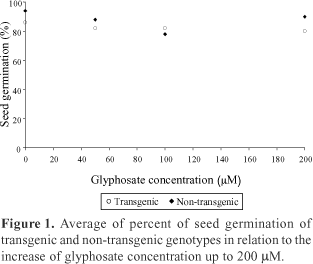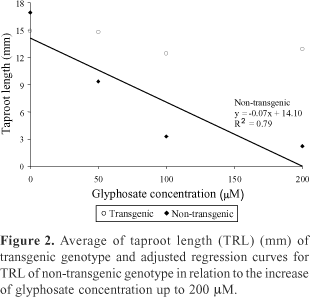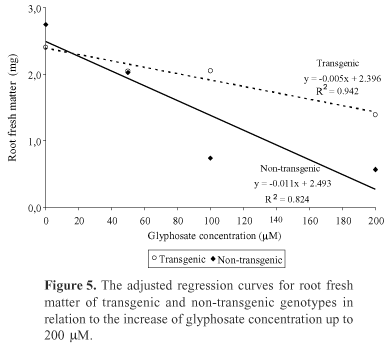Glyphosate is a systemic, nonselective, postemergence herbicide that inhibits growth of both weeds and crop plants. Once inside the plant, glyphosate interferes with biosynthesis of aromatic amino acids phenylalanine, tyrosine, and tryptophan, by inhibiting the activity of 5enolpyruvylshikimate-3-phosphate synthase (EPSPS), a key enzyme of the shikimate pathway. The objective of this work was to develop a simple, effective and inexpensible method for identification of transgenic soybean tolerant to glyphosate. This technique consisted in germinating soybean seeds in filter paper moistened with 100 to 200 muM of glyphosate. Transgenic soybean seeds tolerant to glyphosate germinated normally in this solution and, between 7 and 10 days, started to develop a primary root system. However non-transgenic seeds stopped primary root growth and emission of secondary roots.
Glycine max; herbicide resistance; transgenic plants; biosynthesis








